Events
How AI Algorithms Help Transplantologists
27 05 2024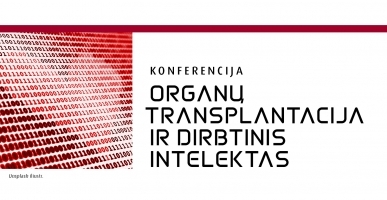
On 25 April 2024, the Lithuanian Academy of Sciences hosted the conference ‘Organ Transplantation and Artificial Intelligence’, which was attended by cardiac surgeons, transplantologists, IT specialists, and other experts. In his welcome address, Prof. Jūras Banys, the president of the Lithuanian Academy of Sciences, noted that one-third of American companies were using Artificial Intelligence (AI). Europe is lagging far behind, and Lithuania has only 5% of such companies. There is no doubt that transplantology, the pinnacle of medicine, will also be increasingly influenced by AI. Prof. Banys expressed his conviction that these technologies would facilitate the work of Lithuanian transplantologists.
Prof. Gintautas Dzemyda, the chair of the Division of Technical Sciences of the Lithuanian Academy of Sciences, added that the breakthrough in this field came with the development of deep neural networks. Using this technology, artificial neural networks learn very complex things, especially in image analysis. Alongside this, classical machine learning techniques are being developed and widely used as an integral part of AI.
Prof. Limas Kupčinskas, the chair of the Division of Biological, Medical, and Geosciences of the Lithuanian Academy of Sciences, believes that transplantology is currently experiencing a boom. In Lithuania, two cities have university hospital transplant centres staffed by surgeons, cardiologists, nephrologists, gastroenterologists, anaesthesiologists, and other specialists. This has led to impressive results. In 2022, 32 liver transplants were performed in Lithuania: per 100 000 inhabitants, the number of these complex operations exceeds that of Denmark.
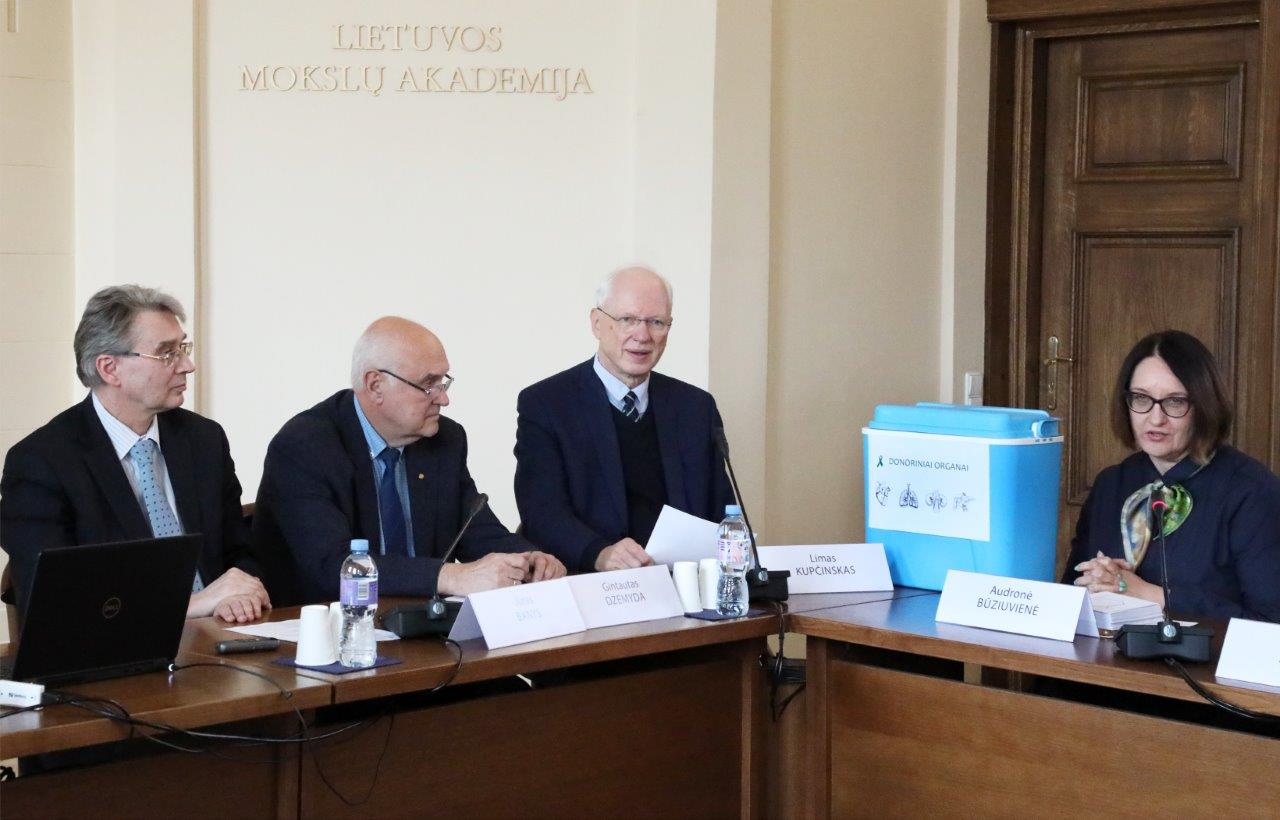
Prof. Jūras Banys, Prof. Gintautas Dzemyda, Prof. Limas Kupčinskas, and Audronė Būziuvienė, the director of the Lithuanian National Transplant Bureau
Audronė Būziuvienė, the director of the Lithuanian National Transplant Bureau, added that between 2018 and 2023, two transplant centres in Kaunas and Vilnius conducted 750 organ transplantations in Lithuania. Improved AI systems are expected to facilitate the transplantologists’ work and improve patient survival. This will help avoid situations where hearts, lungs, or livers have to be rejected because there is no team available (or not enough transplant bags).
The first part of the conference focused on heart transplantation. In his presentation, Prof. Kęstutis Ručinskas of Vilnius University (VU) spoke of heart transplantations at the Santaros klinikos of Vilnius University Hospital and noted that the main problem of Santaros klinikos was a permanent shortage of donor organs. One such untapped reserve is non-heart-beating donors. He spoke about advanced perfusion systems, which are capable of extending the viability of a donor heart, and of xenotransplantations, i.e., the use of genetically edited pig hearts. Prof. Ručinskas stressed that their centre was the only one in Lithuania to perform heart transplants in children, and that almost 70% of the patients (children and adolescents under 18 years of age) were still alive. He believes that AI could predict rejection reactions earlier and more effectively and improve donor-recipient matching, possibly allowing more donors to be identified for transplantation. The application of AI in these areas requires a regulatory framework to be put in place and the assurance of the quality of the data used. The processes are underway: for example, the EU Council is in the process of harmonising the AI law, and the EU Council and Parliament have agreed on the world’s first AI rules.
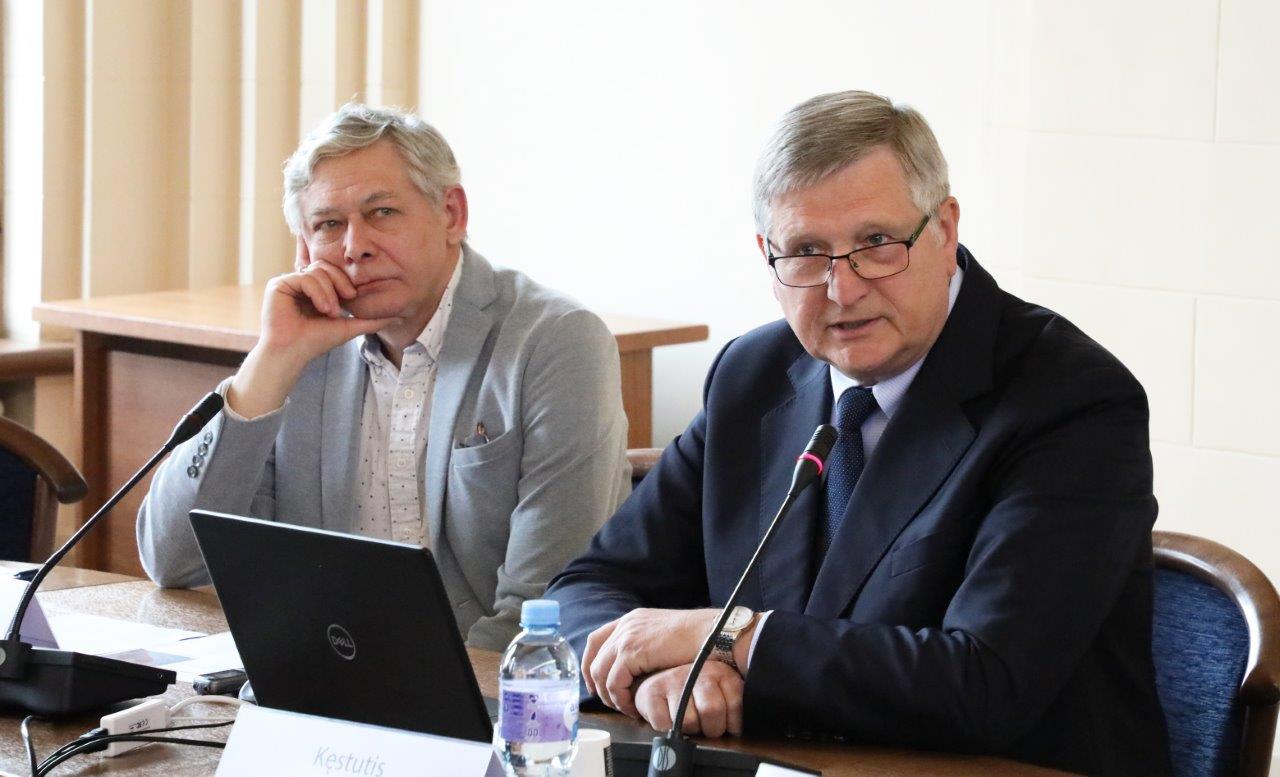
Left to right, Prof. Kęstutis Ručinskas and Prof. Rimantas Benetis
Prof. Rimantas Benetis, the rector of the Lithuanian University of Health Sciences and a full member of the Lithuanian Academy of Sciences, gave a brief overview of the history of transplantation in the world in his presentation on chest organ transplantation and AI. He reminded the conference participants that the first heart transplantation in Lithuania was conducted by the surgeon Algimantas Jonas Marcinkevičius in 1987, and that in Kaunas, the first heart transplantation was carried out in 2001. In Europe, the survival of such patients is better than in the US and North America in general. What can increase the number of donors? Prof. Benetis spoke about the advantages and challenges of heterotopic heart transplantation, non-heart-beating donor lung transplantation, and xenotransplantation. Regarding the latter, two patients with genetically modified pig hearts survived a couple of weeks. The Kauno klinikos University Hospital of the Lithuanian University of Health Sciences started performing lung and heart-lung complex transplants in 2007; it is the only hospital in Lithuania to perform such complex surgery. In Prof. Benetis’s view, AI can analyse the strength of the tissue rejection reaction and assess the patient’s pre-operative condition. Studies show that in nursing, AI already works even better than humans. However, the use is still quite limited, as AI cannot assess the environment and context, and if the input data for analysis is flawed, the conclusions will be the same.
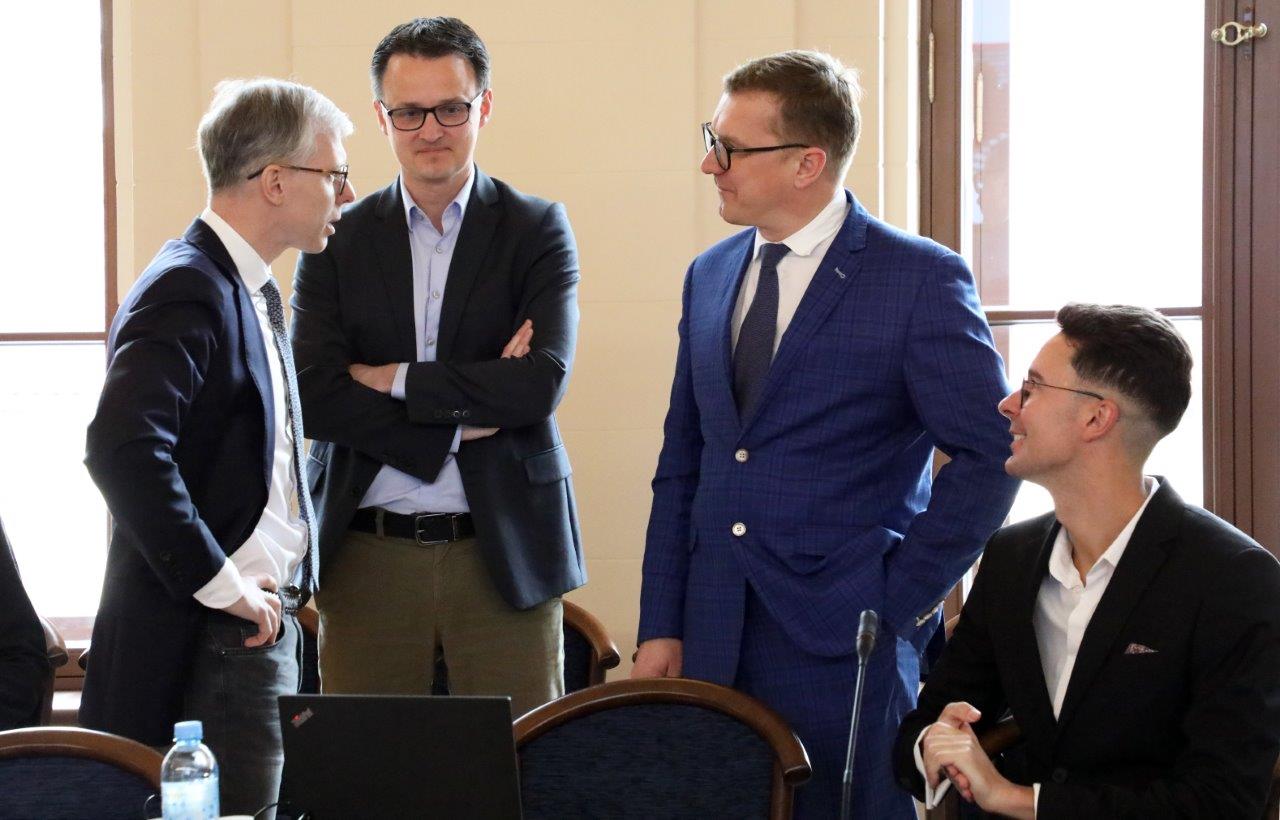
Left to right, Prof. Juozas Kupčinskas, Assoc. Prof. Povilas Ignatavičius, Assoc. Prof. Tomas Vanagas, Dr Arnas Karužas
Dr Arnas Karužas, a cardiologist at the Kauno klinikos University Hospital, spoke about the potential of AI for image analysis in cardiology and transplantology. He said that an AI centre of excellence would be set up in Lithuania. Algorithms have now been developed that can be applied in medical practice for planning operations and assessing post-operative prognosis. AI anticipates and outperforms standard approaches in many areas; research shows that it equals and sometimes even surpasses human inference. It is therefore proposed to call such systems collaborative intelligence.
Recently, the number of publications on the use of AI in the diagnostics of heart failure has been rising. AI algorithms are already used in cardiac ultrasound; it is proving useful in 2D echocardiography for the diagnosis of specific pathologies.
In CT scanning, AI can be used without contrast material, thus reducing the risk to the patient. The speaker concluded that AI was particularly useful for anticipating risks and for more accurate selection of donors and recipients. Yet a lot of work is still to be done before such systems are more widely used in clinical practice. It will be necessary to integrate laboratory and clinical imaging data.
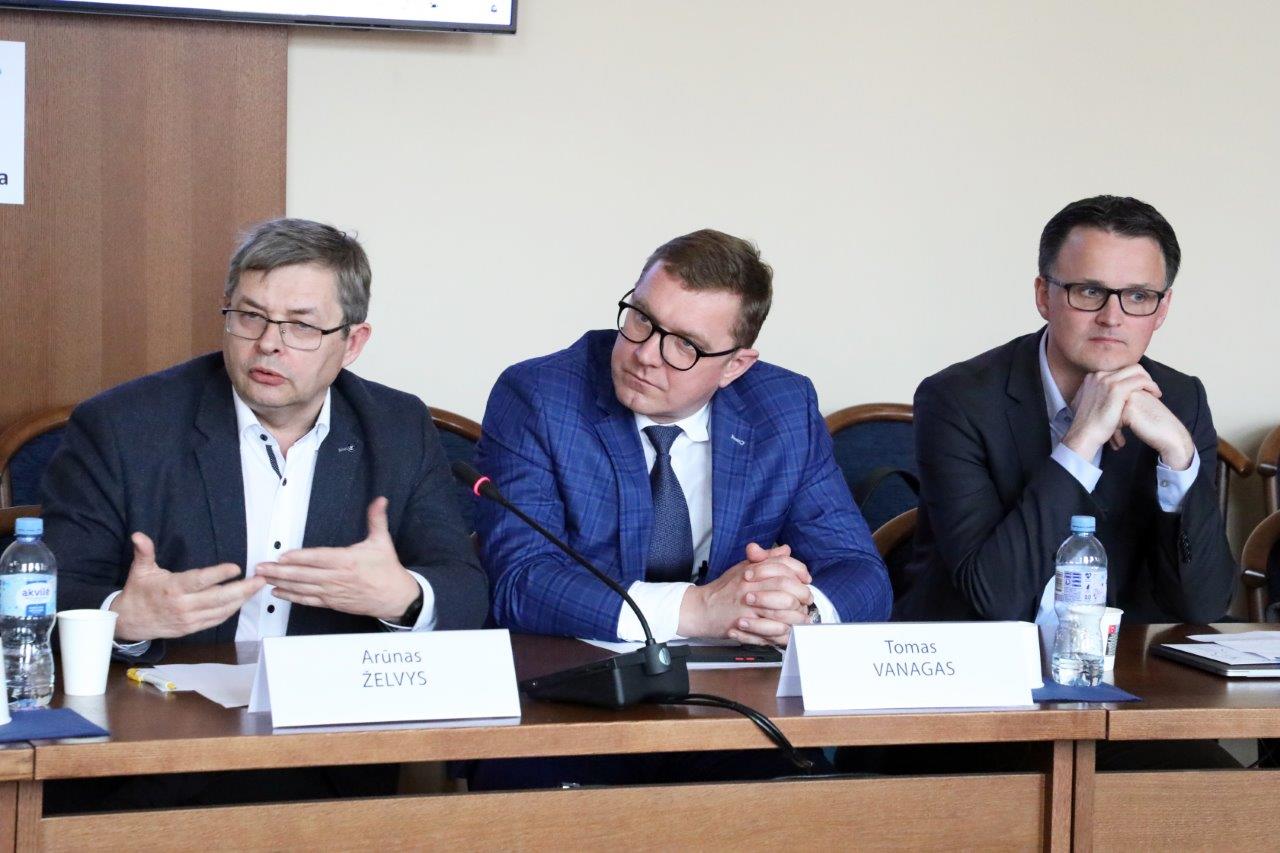
The second part of the conference was devoted to kidney transplantation. Arūnas Želvys, an associate professor at the Santaros klinikos Vilnius University Hospital, talked about kidney transplantation and AI in diagnostics and surgery. Currently, transplant surgeons use robots to remove a kidney, but doctors need to decide how best – by immersion or perfusion – to preserve the donor’s kidney, and how to find the optimal conditions for kidney storage before transplantation. The aim is to ensure that both the recipient and the donor survive as long as possible. This is where AI algorithms could really help, but, unfortunately, from the surgeon's point of view, the relatively small number of transplantations means that there is not enough data to develop such algorithms. In Europe, AI is not yet widely used either, but it is used in diagnostics and sometimes in robotic surgery. It would therefore be more accurate to speak not of AI but of extended intelligence, which enhances human abilities. On the market, there are various robotic surgical systems that summarise surgical performance, evaluate images, and can improve some of the surgeon’s functions and skills. The use of digital twins is on the increase. Basically, a digital twin is a digital model of a patient or diseased created on a computer. It is therefore possible to simulate how the functioning of the organ will change after a transplant or surgery. AI can even be used to educate patients, because people are so different, and AI tailors questions or answers to each person.
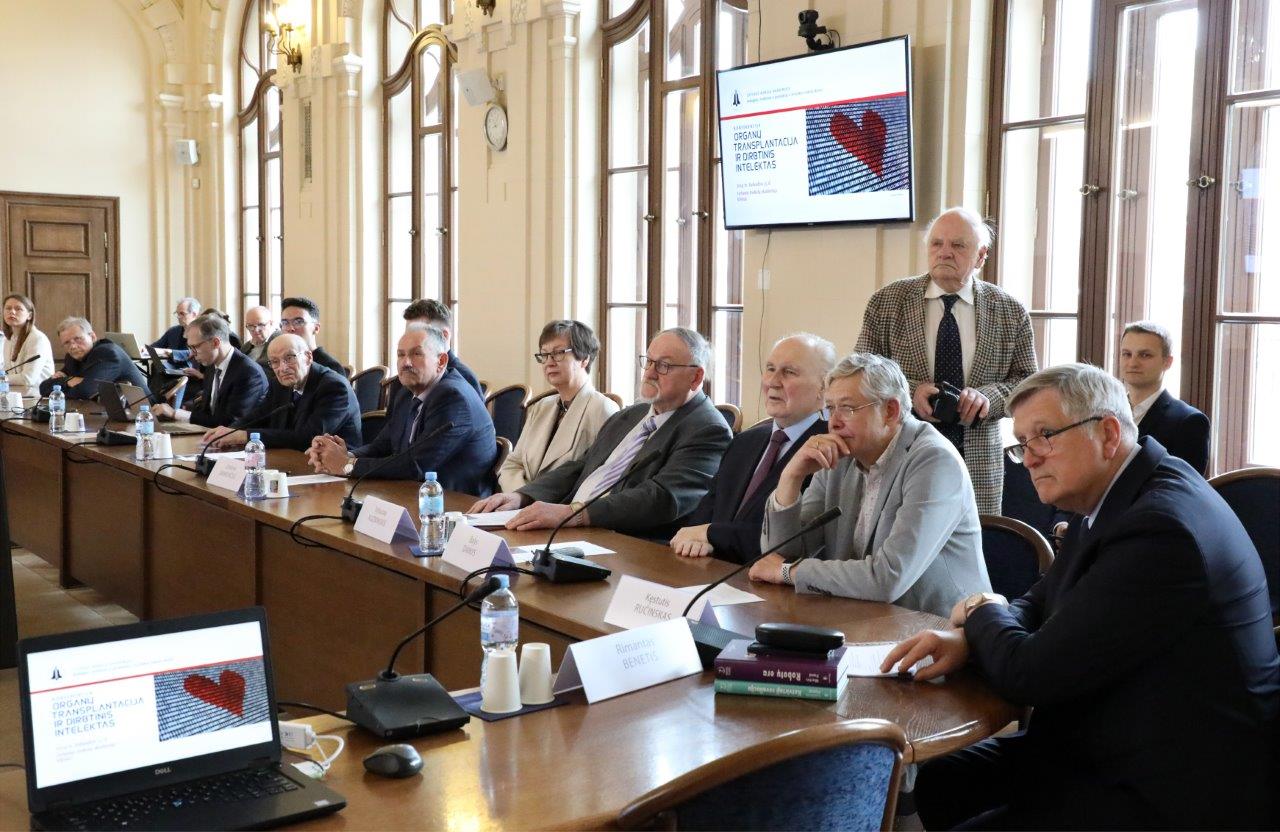
Prof. Inga Arūnė Bumblytė, of the Kauno klinikos University Hospital, talked about kidney transplantation and outcome prediction using classical mathematical methods. Lithuania is on a par with the European average in terms of the number of kidney transplants per million population. Survival rates are also improving. One of the problems transplantologists often face is the delayed function of the transplanted kidney. The researchers at the Lithuanian University of Health Sciences have identified the biomarkers that help predict this. Recently, biomarkers have received considerable attention because this would improve organ compatibility and allow better prediction of outcomes. Therefore, metabolomics is a very important area of science. All this is the result of the use of ‘natural intelligence’. The potential of AI is limited by the ‘small country’ status and the insufficient number of transplantations. Yet even with deteriorating quality of donor organs (due to co-morbidities) and the ageing recipients, transplantation results are improving.
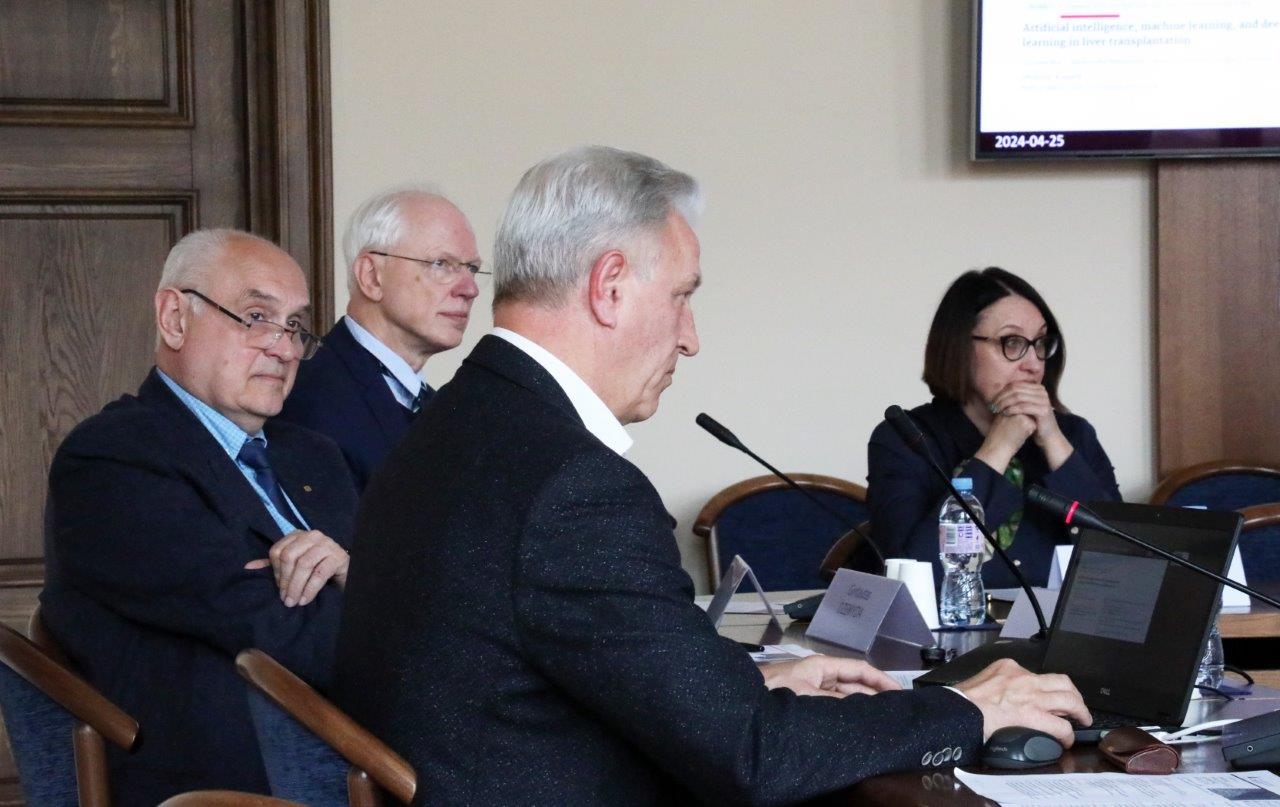
The third part of the conference focused on liver transplantation. Prof. Kęstutis Strupas, a full member of the Lithuanian Academy of Sciences, reviewed the achievements of abdominal organ transplantation at the Santaros klinikos Vilnius University Hospital and noted that in the future, pancreas transplantation in diabetic patients may be replaced by pancreatic cell transplantation, which has been successfully started at Santaros klinikos, but the issues of long-term effect of this procedure still need to be resolved. The speaker stressed the importance of donor liver perfusion machines, which allow the use of inferior donor livers and ensure good transplantation outcomes. AI could help with donor selection and optimisation of the organisational aspects of abdominal organ transplantation.
Prof. Juozas Kupčinskas, an alumnus of the Young Academy of the Lithuanian Academy of Sciences and the head of the Gastroenterology Clinic of the Lithuanian University of Health Sciences, presented the results of liver transplantation at the Kauno klinikos University Hospital and briefly discussed historical aspects. The first successful liver transplantation in Lithuania was performed at Kauno klinikos in 2000, and in 2022, this hospital performed 19 liver transplants, which was the highest number of such transplantations in the country. The speaker also introduced a number of EU and other international research projects on cirrhosis and liver cancer, which are being carried out at Kauno klinikos and which also use AI techniques.
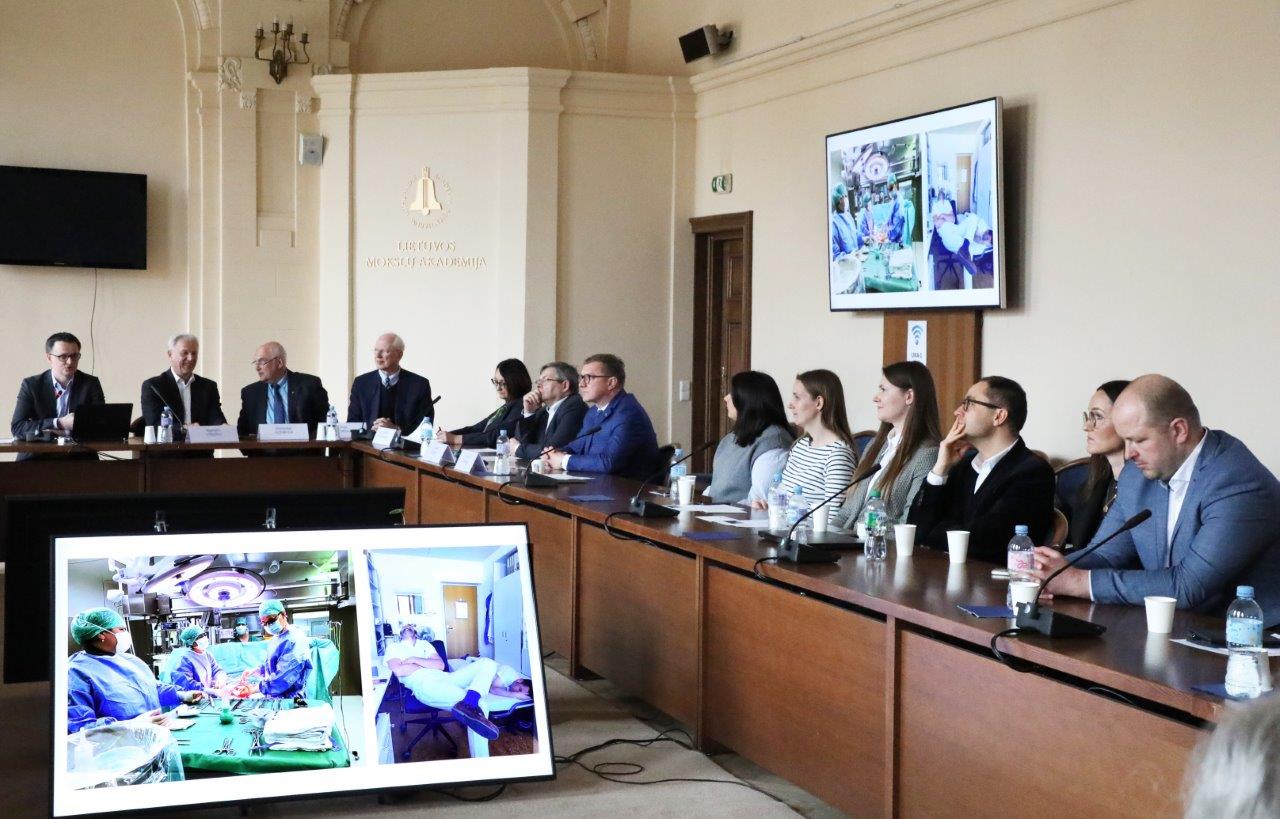
Dr Povilas Ignatavičius, an associate professor at the Surgery Clinic of the Lithuanian University of Health Sciences, shared his two-year experience of working as a surgeon at the transplantation centre in Zurich (Switzerland) and pointed out that the methods of using the non-heart-beating donor liver should be adopted from this country; for this purpose, it is necessary to change the legislative basis and to achieve the National Health Insurance Fund to cover the cost of the procedures of perfusion of donor livers.
In his presentation, Prof. Gintautas Dzemyda reviewed the application of AI methodologies in predicting the outcome of liver transplantation surgeries at the Santaros klinikos Vilnius University Hospital and pointed out that these modern methodologies would be developed in cooperation with the Washington University Hospital (USA), where Assoc. Prof. Aistė Gulla, the co-author of the presentation, started working.
Summing up the conference, Prof. Limas Kupčinskas, the chair of the Division of Biological, Medical, and Geosciences of the Lithuanian Academy of Sciences, thanked the speakers and noted that the application of AI in the healthcare system opened up a wide range of opportunities, and joked that GPs will not lose their jobs as a result. Yet it is worth knowing what US health experts have predicted: in the future, doctors who use AI may displace doctors who do not embrace these innovations.
The conference closed with the screening of Dominykas Kubilius’s documentary film Resurrection co-created with LRT in collaboration with the transplantation centres of the Kauno klinikos University Hospital of the Lithuanian University of Health Sciences and the Santaros klinikos Vilnius University Hospital, donor hospitals, and other partners. The film can be found here https://we.tl/t-6jMpA7UCCT .
Dr Rolandas Maskoliūnas and Prof. Limas Kupčinskas
Photography Virginija Valuckienė
Translated by Diana Barnard
